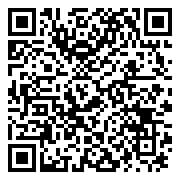Introduction
Document and records management is a critical part of any growing business. Hospitals need to maintain records of their patients, schools of their students, and police departments of criminals. Examples of this are everywhere. The key challenge lies in safely storing this data, ensuring it is easily accessible by authorized personnel, and determining when to destroy records. This course will cover essential concepts such as document control, records management, and how to implement an efficient document control process aligned with ISO 15489 standards. The course will also address the importance of controlled documentation and discuss the roles and duties of a document controller.
Course Objectives
By the end of this course, participants will gain comprehensive knowledge and practical skills in the following areas:
- Understanding ISO 15489 standards and how they relate to records management and document control.
- Implementing the document control process to ensure efficient document and record handling.
- Retrieving documents when needed and ensuring they are properly categorized.
- Managing the document and records lifecycle and ensuring compliance with retention policies.
- Authorizing access to certain documents based on roles and responsibilities.
- Recognizing the significance of document control certification and training in maintaining an effective records system.
Course Outlines
Day 1: Understanding ISO 15489 Standards
- Key document control and records management terminology.
- Introduction to ISO 15489: International standards for records management.
- Planning for document management and records management projects.
- Differentiating between Document Management Systems (DMS) and Record Management Systems (RMS).
- The role of information governance in document control and records management.
- Understanding the records lifecycle.
Day 2: Classification and Managing Physical Records
- Document classification strategies.
- Managing physical records and storing them securely.
- Automating document control processes.
- Converting paper documents into electronic records.
- IT infrastructure and its role in document and records management.
Day 3: Implementing the Document Control Process
- Document control implementation: Best practices for labeling and classification.
- Using barcode systems for better document management.
- Filing segments, reducing costs, and ensuring easy access.
- Indexing and organizing documents for optimal storage.
Day 4: Understanding the Document Lifecycle
- Document retention policies and creating a retention schedule.
- Document destruction: Safely eliminating outdated or unnecessary documents.
- Security control and ensuring the integrity of documents.
- Version control and managing changes to documents.
- Capturing metadata to improve records management.
Day 5: Authorizing Access to Documents
- Information audit: Monitoring compliance with document and records policies.
- Searching for and accessing files efficiently.
- Accession logs and maintaining proper records.
- Sharing and distributing documents within workflows.
- Collaboration on controlled documentation in a team setting.
Why Attend This Course? Wins & Losses!
Attending this course offers invaluable benefits for professionals looking to enhance their document control and records management skills. Here's what you will gain:
- Master ISO 15489 Standards: Learn to implement international standards for effective document control and records management.
- Increase Efficiency: Streamline document control processes and reduce costs associated with managing paper-based records.
- Achieve Legal and Regulatory Compliance: Implement best practices that ensure compliance with local and international record-keeping regulations.
- Enhance Security: Understand how to safeguard controlled documents and ensure only authorized personnel have access.
- Improve Document Retrieval: Learn advanced techniques for retrieving documents quickly and efficiently through document management and records systems.
By not attending, organizations risk disorganization, non-compliance, and inefficient document retrieval, which could significantly impact their operations.
Conclusion
Effective document control and records management are essential for safeguarding important data and improving business operations. Through this course, you will learn how to apply the best practices for managing documents and records in accordance with the ISO 15489 standard. You'll also understand how to manage the document lifecycle, handle controlled documentation, and ensure that only authorized personnel have access to sensitive records. This training is vital for professionals who aim to strengthen their organization’s document management processes and remain compliant with international standards.
Join the course today and be part of the digital future of business!


